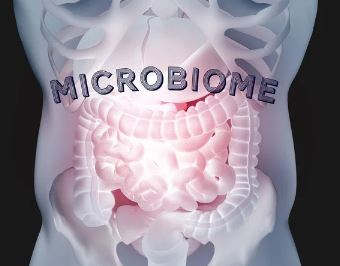The gut health microbiome is a complex community of microorganisms that reside in our digestive tract. This community includes trillions of bacteria, viruses, and fungi, collectively known as the gut microbiota. These microorganisms perform a range of essential functions, such as breaking down food, producing vitamins, and regulating our immune system.
Gut health refers to the balance and diversity of our gut microbiota, as well as the overall function of our digestive system. A healthy gut microbiome is diverse, with a wide variety of microorganisms that work together to maintain a balanced ecosystem. A healthy gut also has good intestinal permeability, meaning that the lining of the digestive tract is strong enough to prevent harmful substances from entering the bloodstream.[1]
The Importance of Gut Health
Maintaining a healthy gut is essential for overall health and well-being. The gut microbiota plays a crucial role in several important bodily functions, including:
- Digestion: The gut microbiota helps to break down food and absorb nutrients.
- Immune function: The gut microbiota plays a vital role in regulating our immune system, protecting us from harmful pathogens, and reducing inflammation.
- Mental health: The gut microbiota is closely linked to brain function, and can impact mood, behavior, and cognitive function.
- Weight management: The gut microbiota plays a role in regulating metabolism and body weight.
- Skin health: The gut microbiota can impact the health and appearance of our skin.
Signs of Poor Gut Health
Several signs and symptoms may indicate poor gut state, including:
- Digestive problems such as bloating, gas, diarrhea, or constipation.
- Food intolerances or sensitivities.
- Autoimmune diseases such as rheumatoid arthritis, multiple sclerosis, or inflammatory bowel disease.
- Skin issues such as acne, eczema, or psoriasis.
- Chronic fatigue, brain fog, or mood disorders.
If you experience any of these symptoms, it may be a sign that your gut health needs attention.
Maintaining a Healthy Gut
Maintaining a healthy gut involves several key strategies, including:
1. Eating a Balanced Diet
A balanced diet rich in fiber, whole grains, fruits, and vegetables is essential for maintaining a healthy gut. These foods provide essential nutrients for the gut microbiota and promote good intestinal permeability. Probiotic-rich foods, such as yogurt, kefir, and sauerkraut, can also help to boost the diversity of the gut microbiota.
2. Avoiding Processed Foods
Processed foods, high in sugar and unhealthy fats, can disrupt the balance of the gut microbiota and cause inflammation. Avoiding processed foods and consuming a whole-foods diet is essential for maintaining a healthy gut.
3. Managing Stress
Stress can impact gut health by altering the balance of the gut microbiota and causing inflammation. Managing stress through techniques such as meditation, yoga, or exercise can help to maintain a healthy gut.
4. Getting Enough Sleep
Sleep plays a crucial role in maintaining gut health. Lack of sleep can disrupt the gut microbiota and lead to inflammation. Aim for at least 7-8 hours of sleep per night to support a healthy gut.
5. Taking Probiotics and Prebiotics
Probiotics are live microorganisms that can help to boost the diversity of the gut microbiota. They are found in fermented foods such as yogurt, kefir, and kimchi, as well as in supplement form. Prebiotics are non-digestible fibers that serve as food for the gut microbiota. They are found in foods such as garlic, onions, bananas, and asparagus.
6. Staying Hydrated
Drinking plenty of water is essential for maintaining good gut health. Water helps to promote good intestinal permeability and prevent constipation.
7. Limiting Antibiotic Use
Antibiotics can disrupt the balance of the gut microbiota by killing both harmful and beneficial bacteria. Limiting antibiotic use whenever possible is essential for maintaining a healthy gut.
Nutrition and Gut Health
Nutrition plays a vital role in promoting good gut health. The following nutrients are particularly important for maintaining a healthy gut:
Fiber
Fiber is a non-digestible carbohydrate that is essential for maintaining good gut health. It helps to promote good intestinal permeability, regulate bowel movements, and feed the gut microbiota. Foods that are high in fiber include whole grains, fruits, vegetables, beans, and legumes.
Polyphenols
Polyphenols are plant-based compounds that have antioxidant and anti-inflammatory properties. They are found in foods such as fruits, vegetables, tea, and dark chocolate. Polyphenols can help to promote a diverse gut microbiota and reduce inflammation.
Omega-3 Fatty Acids
Omega-3 fatty acids are essential fats that are found in fatty fish, nuts, and seeds. They have anti-inflammatory properties and can help to promote a healthy gut microbiota.
Conclusion
Maintaining a healthy gut is essential for overall health and well-being. A balanced diet, stress management, and adequate sleep are key strategies for promoting good gut health. Consuming probiotics and prebiotics, staying hydrated, and limiting antibiotic use are also important for maintaining a healthy gut. By prioritizing good gut health, we can promote healthy microbiota, boost our immune system, and reduce the risk of chronic disease.










Comments are closed.